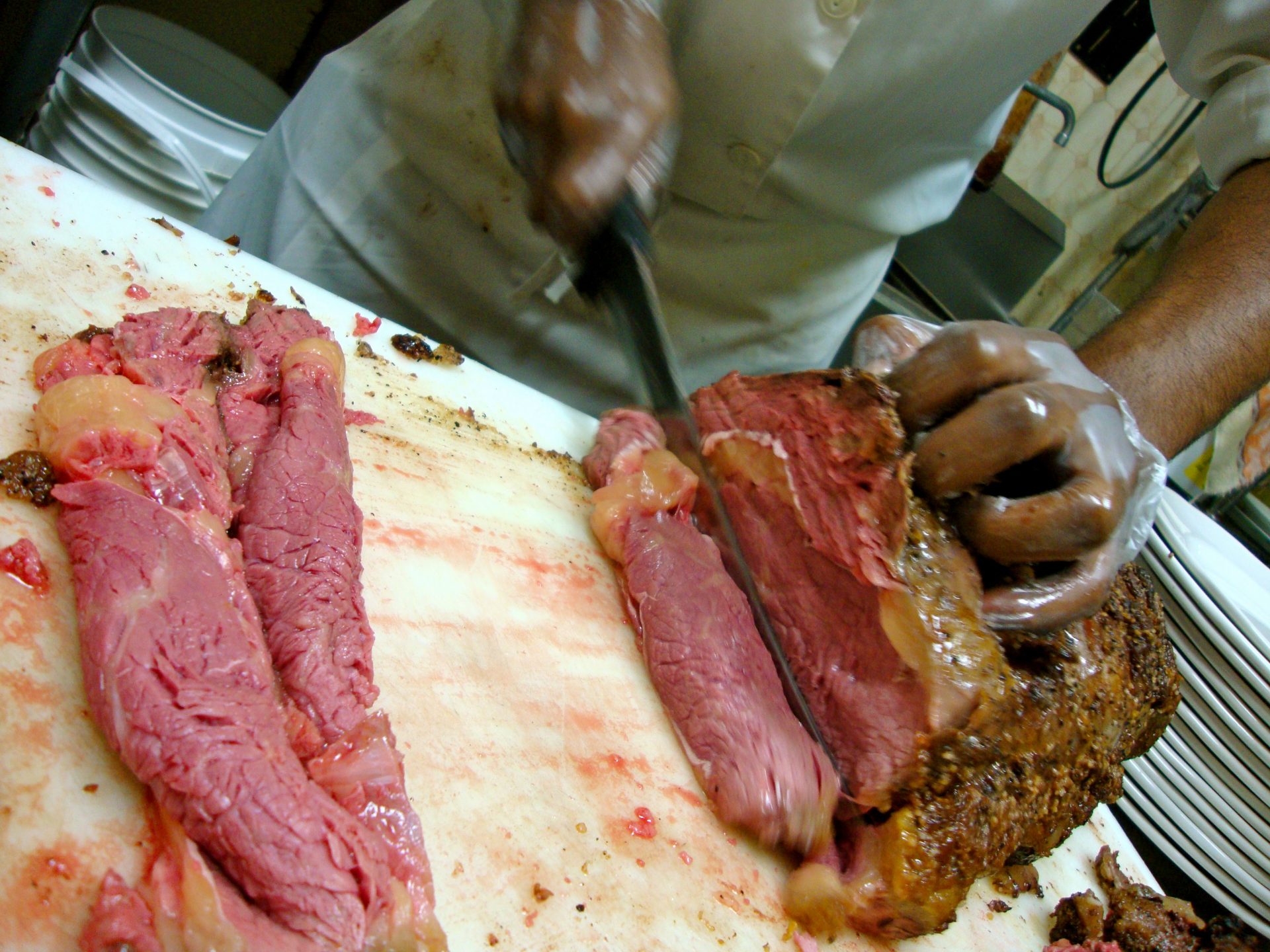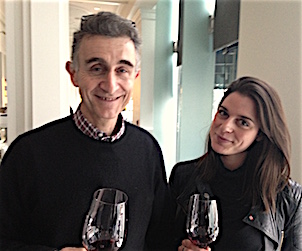By Kylie Meyermann
Last week, a handful of Toronto’s best food-bloggers meet at St. Jamestown Steak & Chops to solve the age -old question: is dry aged beef really better than wet aged? By the end of the evening, it was unanimous that while people preferred the dry aged prime rib to the wet aged, conversation quickly turned to the topic of origin and provenance. For many consumers, the source of the meat is still of the utmost importance.
While there is much talk in the west of rotational grazing, with Stone Barns Centre for Food and Agriculture as the innovative leader, the Maritimes have never faltered from the pre-confederation agricultural practices passed from farmer to farmer through the generations. “In P.E.I. they have a different way of approaching [farming]. They’re artisan farmers,” Pearse Dolan, President of Dolan Foods Inc. and passionate advocate of P.E.I. Beef, was in Toronto June 5, and eloquently explained why he believes P.E.I. Beef to be superior to the competition.
“Especially when discussing wine, you often hear people refer to terroir. P.E.I. is four miles wide by 150 miles long and when you stand in the middle of this province you can see the ocean all around you. I can’t help but think that the salt in the air must contribute and play a part in the development of the cattle. PEI definitely has a unique terroir.” Doland travels from Toronto to P.E.I. every two months to meet with farmers and participate in the XX philosophy.
Tim Dixon from Dixon Farms is a fourth generation cattle farmer in P.E.I., raises his cows in a barn built pre-Confederation. He takes pride in showing guests the beams stretching across the hay trough that were hand-carved by his forefathers. Unlike the layouts of many new-age barns, Dixon’s barn is a free-range home for it’s four legged residents. With open feeding lots, the cattle are free to graze in an open environment. They may bathe in the sun, or find shelter when weather conditions prove too harsh.
Temple Grandin is a famous American doctor of animal science and a consultant to the livestock industry on animal behaviour. Her life work was recently made into a mini-series that premiered on HBO. Dolan was fortunate to collaborate with Grandin a few years ago where Gradin taught Dolan and a handful of others about cattle behaviour. Dolan can still vividly remember the lessons taught by Gradin that day.
“Grandin turned to me and asked what colour of shirt I was wearing. I was wearing white at the time, and she says, ‘No, what colour are you wearing?’ I was dumbfounded, and once again I told her I was wearing white. ‘You may think that you’re wearing white, but the cattle think that you’re wearing red. There is a dye in your shirt that excites the cows.’ Later during the same day we we’re walking through the barn and she asks us what we hear. I told her that I was hearing mooing. She told us that something was wrong and as we walked around the barn, sure enough, one of the water pin’s wasn’t flowing and we had to fix it. When you walk through the barns of P.E.I. it’s quiet and relaxed. The farmers are listening.”
P.E.I. cattle is raised on grass, potatoes and grains. Typical cattle tend to be 20 months old, but P.E.I cattle are 24-30 months old. Dalon credits this to P.E.I.’s reluctance to follow conventional beef practices. “When you have conventional beef practices, it’s one big formula. They bring cattle in and they want to put them through a feeding program that is typically four to five months. The producer who is doing this knows his costs and he knows that in five months the cattle should weigh a particular amount. If they don’t, that’s when they usually introduce some medications so that they can meet the projection cost. In P.E.I., it’s small producers that will determine if a cattle is ready for the market or if it should wait a few more weeks. If one cow has had a rough winter the farmer will decide to keep it on feed longer.” Dalon insists that small producers listen to the cow’s behaviour and truly care about the cow’s well being. If the cow is happy and fully developed without any additives or enzymes, the final product will be much more palatable.
Joel Solish and Mark Michelin, the organizers of the St.Jamestown Steak & Chops taste test, both agree that P.E.I. beef offers a freshness not yet offered in Ontario products. P.E.I. Beef is available at St.Jamestown Steak & Chops.
 Kylie Meyermann is a contributor of Good Food Revolution. Her passion is wine and she updates her twitter account daily with her latest tasting notes. @Kylieswines
Kylie Meyermann is a contributor of Good Food Revolution. Her passion is wine and she updates her twitter account daily with her latest tasting notes. @Kylieswines









Hi there, thanks for the great write up on PEI Beef! FYI my name is Tim Dixon not Dickens. If anyone is interested our website is dixonfarms.ca .
Sorry about that, Tim. Where can folks find your beef in Toronto and/or Southern Ontario other than St. James Town? – Malcolm (ed.)
While I can’t say for sure if it would be beef from our farm, PEI beef that is prepared at Atlantic Beef Products in Borden-Carleton, PEI can be found at numerous locations such as Oliffe Butcher Shop on Yonge St and The Cricket Club in the downtown. Dolan Foods is a proud supporter and a distributor of products from this producer owned facility.
Btw, it’s Temple Grandin, not GradIn. Good article though.